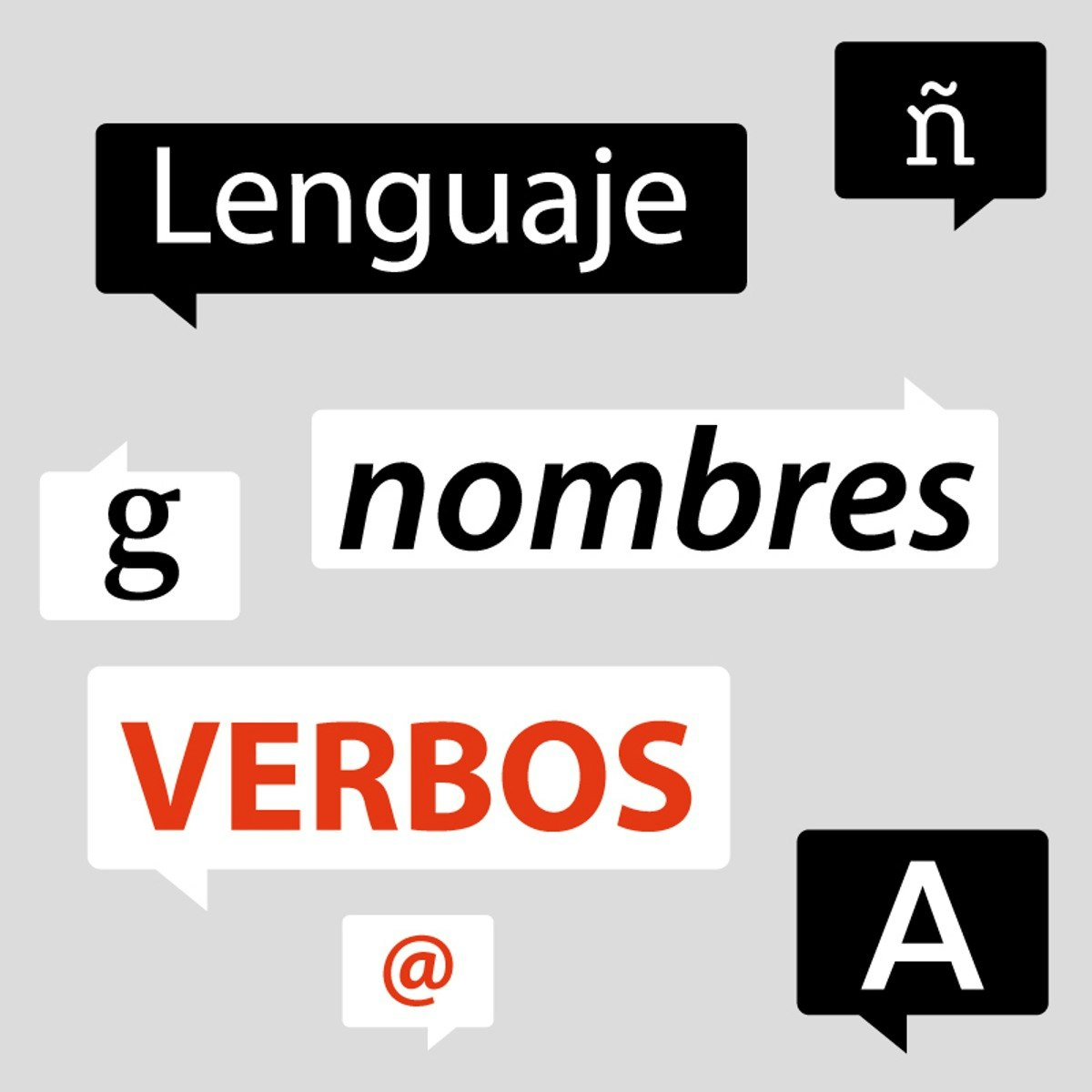Lexicographer
A Career as a Lexicographer: Crafting the Language We Use
Lexicography is the practice of compiling, writing, and editing dictionaries. It's a field dedicated to meticulously recording and describing the vocabulary of a language, capturing its nuances, origins, and evolution. Lexicographers are essentially the cartographers of language, mapping out the meanings, forms, and uses of words.
Working as a lexicographer involves deep dives into the history and structure of words, tracing their journeys through time and across cultures. It offers the unique satisfaction of contributing to how people understand and communicate. The field constantly evolves, particularly with the rise of digital resources and computational tools, making it a dynamic area for those fascinated by language and technology.
Introduction to Lexicography
What is Lexicography?
At its core, lexicography is the systematic description of the vocabulary of a language. This involves researching words, analyzing their meanings and usage in context, and presenting this information clearly and accurately in dictionary entries. It encompasses both theoretical principles (metalexicography) and the practical work of creating dictionaries (practical lexicography).
The scope is broad, ranging from general-purpose dictionaries aiming for wide coverage to specialized lexicons focusing on specific subjects, historical periods, or dialects. Lexicographers decide which words to include, how to define them, what illustrative examples to provide, and how to represent pronunciation and etymology.
This field requires a blend of linguistic knowledge, analytical rigor, and careful judgment. It's about documenting language as it is used, while also providing guidance on standard usage where appropriate. The end product, a dictionary, serves as a vital reference tool for speakers, writers, learners, and researchers.
These foundational texts provide a solid overview of the principles and practices governing the field of lexicography.
A Brief History
The practice of explaining words dates back millennia, with early glossaries found in ancient civilizations. However, lexicography as a structured discipline developed much later. Early English dictionaries, like Robert Cawdrey's "Table Alphabeticall" (1604), focused on "hard words."
The 18th century saw landmark works like Samuel Johnson's "A Dictionary of the English Language" (1755), known for its extensive definitions and literary quotations. The 19th century brought historical principles to the forefront, culminating in the monumental Oxford English Dictionary (OED), which aimed to trace the history of every word.
The 20th and 21st centuries have been marked by the influence of linguistics, the use of electronic corpora (large collections of texts) for usage analysis, and the transition to digital formats. Today, dictionaries are often dynamic online resources, updated continuously to reflect language change.
Understanding the history of English provides context for the evolution of its vocabulary and the challenges faced by lexicographers over time.
Exploring the story behind major dictionary projects offers insight into the scale and dedication involved in lexicography.
Lexicography and Linguistics
Lexicography and linguistics are deeply intertwined. Linguistics, the scientific study of language, provides the theoretical framework and analytical tools that lexicographers use. Concepts from phonetics, phonology, morphology, syntax, and semantics are fundamental to dictionary work.
For example, understanding morphology helps break down words into meaningful parts (prefixes, suffixes, roots), aiding definition and etymological analysis. Semantic principles guide the careful differentiation of word senses. Corpus linguistics allows lexicographers to base descriptions on actual language use patterns found in vast amounts of text and speech data.
While linguistics often focuses on general principles and structures, lexicography applies these to the specific task of describing the lexicon. A good lexicographer must be a competent practical linguist, adept at observing, analyzing, and describing linguistic phenomena accurately.
Modern Applications
The digital age has revolutionized lexicography. While traditional print dictionaries still exist, much lexicographical work now focuses on creating and maintaining online dictionaries, mobile apps, and lexical databases. These digital platforms allow for multimedia content, hyperlinks, and frequent updates.
Lexicographical data is also crucial for natural language processing (NLP) and artificial intelligence (AI). Word lists, definitions, semantic relationships, and usage information compiled by lexicographers feed into applications like machine translation, spell checkers, grammar correctors, voice assistants, and sentiment analysis tools.
Computational lexicography has emerged as a subfield, combining linguistic expertise with programming skills to manage large datasets and develop tools for lexical analysis. The skills of a lexicographer are increasingly relevant in tech companies developing language technologies.
Courses exploring the intersection of language, data, and technology can be valuable for aspiring modern lexicographers.
Core Responsibilities of a Lexicographer
Researching Word Origins and Usage
A significant part of a lexicographer's job involves etymological research – tracing words back to their earliest known origins. This often requires knowledge of historical linguistics and multiple languages. They investigate how a word entered the language, its relationship to words in other languages, and how its form and meaning have changed over time.
Equally important is researching current usage. Lexicographers analyze large text corpora to see how words are actually used by speakers and writers today. They identify common patterns (collocations), different senses, variations in spelling or form, and the contexts (registers) in which a word typically appears.
This research informs decisions about which words merit inclusion, which senses are most common, and what illustrative examples best capture typical usage. It ensures the dictionary reflects contemporary language accurately.
These books delve into the fascinating world of word origins and how languages borrow and adapt terms.
Defining Terms Accurately
Writing clear, concise, and accurate definitions is perhaps the most recognized task of a lexicographer. This requires a deep understanding of semantics and the ability to express complex meanings simply. Definitions must distinguish a word from similar terms and capture its essential characteristics.
Lexicographers must carefully analyze the different senses (meanings) of a word, determine how they relate to each other, and order them logically within an entry. They often craft definitions based on patterns observed in corpus data, ensuring the descriptions align with real-world usage.
The goal is to create definitions that are informative for the target audience, whether they are native speakers, language learners, or specialists. This demands precision, objectivity, and excellent writing skills.
Developing a strong vocabulary and understanding nuances in meaning are crucial for definition writing. Online courses can help refine these skills.
Ensuring Linguistic Consistency
Dictionaries aim for internal consistency in their approach to defining, formatting, and labeling. Lexicographers work within established style guides and editorial policies to ensure uniformity across entries. This includes consistent use of abbreviations, labels (e.g., 'formal', 'informal', 'technical'), and cross-referencing.
Consistency also applies to linguistic analysis. For instance, the treatment of parts of speech, verb transitivity, or noun countability should follow a coherent system throughout the dictionary. This requires meticulous attention to detail and adherence to the project's standards.
Maintaining consistency is particularly important in large, collaborative dictionary projects where multiple editors contribute entries. It ensures the final product is reliable and user-friendly.
Strong grammar and style foundations are essential for maintaining consistency in editorial work.
Collaboration and Specialization
Lexicography is often a collaborative effort. Lexicographers work with fellow editors, etymologists, phoneticians, and subject-matter experts. For specialized dictionaries (e.g., medical, legal), collaboration with professionals in those fields is crucial to ensure technical accuracy.
Within a dictionary team, individuals might specialize. Some may focus on etymology, others on definition writing, pronunciation, or managing the corpus data. Computational lexicographers develop and maintain the software tools used in the dictionary production process.
Effective communication and teamwork skills are therefore important. Lexicographers must be able to discuss linguistic points clearly, provide constructive feedback, and integrate contributions from various specialists into a cohesive whole.
Essential Skills for Lexicographers
Advanced Linguistic Insight
A strong foundation in linguistics is paramount. Lexicographers need more than just a love for words; they require analytical skills grounded in linguistic theory. This includes understanding phonetics, phonology, morphology, syntax, semantics, and pragmatics.
This knowledge allows them to accurately analyze word structures, sound patterns, grammatical functions, meanings, and usage in context. It enables them to make informed decisions about how to represent linguistic information in a dictionary entry.
Without this analytical framework, it's difficult to describe language systematically and accurately. Formal training in linguistics provides the necessary tools and concepts for rigorous lexicographical work.
Courses focusing on linguistic awareness and specific grammatical structures can deepen this analytical insight.
Attention to Semantic Nuance
Lexicographers must possess an exceptional sensitivity to subtle differences in meaning (semantic nuance). They need to distinguish between closely related synonyms, identify different senses of a single word (polysemy), and understand how context affects interpretation.
This skill is crucial for writing precise definitions and selecting appropriate example sentences that clearly illustrate a specific meaning. It involves careful observation of how words are used and the ability to articulate fine distinctions.
Developing this involves extensive reading, analyzing language use, and practicing the art of definition. It's a skill honed through experience and a deep engagement with the language.
Exploring vocabulary in depth helps cultivate an appreciation for semantic detail.
Proficiency with Corpus Analysis Tools
Modern lexicography relies heavily on corpus linguistics. Lexicographers need to be proficient in using software tools designed for analyzing large collections of digital text (corpora). These tools help identify word frequencies, collocations, grammatical patterns, and variations in usage.
Familiarity with query languages and techniques for extracting relevant data from corpora is essential. Examples include tools like Sketch Engine, AntConc, or using programming languages like Python with NLP libraries for custom analyses.
This technical proficiency allows lexicographers to base their descriptions on empirical evidence drawn from vast amounts of real language data, leading to more accurate and up-to-date dictionaries.
These project-based courses introduce quantitative methods for analyzing text, a key skill in modern lexicography.
Cross-Cultural Communication Skills
Language is deeply embedded in culture. Lexicographers, especially those working on bilingual dictionaries or documenting languages with diverse speaker communities, need strong cross-cultural communication skills. This involves understanding how cultural contexts shape meaning and usage.
It also means being sensitive to potential biases in language data and dictionary descriptions. Awareness of sociolinguistic variation (differences based on region, age, gender, social group) is important for representing language comprehensively and equitably.
For those working internationally or on multilingual projects, the ability to collaborate effectively with colleagues from different linguistic and cultural backgrounds is vital.
Understanding language variation and cultural context is key. These courses explore linguistic diversity.
Formal Education Pathways
Undergraduate Foundations
A bachelor's degree is typically the minimum educational requirement. Degrees in Linguistics are highly relevant, providing foundational knowledge in language structure and analysis. English or Literature degrees can also be beneficial, particularly for developing strong writing skills and a sensitivity to language use.
Degrees in specific languages (e.g., French, Classics, Chinese) are essential for those wishing to work on dictionaries for those languages or on bilingual dictionaries. Coursework in areas like semantics, morphology, syntax, phonetics, and etymology is particularly valuable.
Regardless of the major, developing strong analytical, research, and writing skills during undergraduate studies is crucial. Exposure to different languages and linguistic theories broadens perspective.
Specialized Graduate Programs
While not always mandatory, a master's degree or PhD in Linguistics or a related field can significantly enhance career prospects, especially for research or academic positions in lexicography. Some universities offer specialized graduate programs or concentrations specifically in lexicography or computational linguistics.
These programs provide advanced training in lexicographical theory and practice, corpus linguistics, dictionary compilation techniques, and the use of relevant software tools. They often involve hands-on projects, such as contributing to a dictionary or building lexical resources.
Research at the PhD level might focus on specific areas like lexical semantics, historical lexicography, computational lexicography, terminology, or the lexicography of under-documented languages.
This guide offers practical advice for those involved in the hands-on work of creating dictionaries, often covered in specialized programs.
Language Proficiency
High proficiency in the language(s) being documented is essential. For monolingual dictionaries (e.g., English), native or near-native command is expected. For bilingual or multilingual dictionaries, equivalent proficiency in all relevant languages is necessary.
Knowledge of historical forms of a language (e.g., Old English, Middle English for English lexicography) is often required, especially for historical dictionaries or etymological work. Familiarity with major source languages (e.g., Latin, Greek, French for English etymology) is also highly advantageous.
Continuous language learning and refinement are part of the job. Lexicographers must stay abreast of language changes and maintain their linguistic acuity.
Courses focusing on specific languages, including historical or classical forms, build essential proficiency.
Alternative Learning Strategies
Self-Study with Linguistic Corpora
For those unable to pursue formal degrees, dedicated self-study can build relevant skills. Engaging directly with linguistic corpora is a powerful way to learn about language use. Many corpora are accessible online, some freely available for research purposes.
By using corpus analysis tools (some are open-source), learners can explore word frequencies, collocations, and contextual usage patterns independently. This hands-on analysis mirrors the research process used by professional lexicographers.
Combining corpus exploration with reading textbooks on linguistics and lexicography can provide a solid, practical foundation. Setting personal projects, like analyzing the usage of specific words or phrases, can structure self-learning.
Understanding the basics of syntax is helpful when analyzing corpus data.
Contributing to Open-Source Projects
Participating in open-source or collaborative dictionary projects, like Wiktionary or specialized community-driven glossaries, offers invaluable practical experience. It allows learners to practice writing definitions, researching etymologies, and adhering to editorial standards in a real-world context.
These platforms often have established guidelines and communities of experienced contributors who can provide feedback. Engaging with these projects demonstrates initiative and allows aspiring lexicographers to build a portfolio of their work.
This hands-on involvement can be a significant learning opportunity, complementing theoretical knowledge with practical application.
Language Documentation and Fieldwork
Getting involved in language documentation initiatives, particularly for lesser-known or endangered languages, can provide unique lexicographical experience. This work often involves collecting word lists, recording usage, and analyzing grammatical structures, essentially creating lexical resources from scratch.
While requiring linguistic training (often gained through workshops or collaboration with linguists), fieldwork develops skills in eliciting information, transcribing language, and understanding language in its cultural context. This experience is highly valued, especially in academic or non-profit sectors focused on language preservation.
Learning about diverse language structures broadens one's linguistic perspective.
Blending Lexicography with Technical Skills
Combining linguistic interests with technical skills opens alternative pathways. Learning programming (especially Python), database management, or web development can lead to roles in computational lexicography or NLP.
Similarly, strong writing and editing skills can be combined with lexicographical knowledge for careers in technical writing, editing, or content creation, where precision in language is critical. Developing expertise in specific subject domains (e.g., law, medicine) can lead to specialized terminology work.
This interdisciplinary approach can make candidates attractive for roles that bridge traditional lexicography and technology or specialized communication.
Career Progression for Lexicographers
Entry-Level Roles
Initial positions in lexicography often involve assistant or associate editor roles within dictionary publishers, academic projects, or language technology companies. Tasks might include proofreading entries, verifying citations, basic definition drafting, or managing specific sections of a dictionary database.
These roles provide essential on-the-job training, allowing newcomers to learn the specific workflows, style guides, and software used by the organization. It's a period of honing practical skills under the guidance of senior lexicographers.
Internships during or after academic studies can be a crucial stepping stone into these entry-level positions.
Paths to Specialization
As lexicographers gain experience, they often develop specializations. One common path is historical lexicography, focusing on etymology and language change, often working on large historical dictionaries like the OED.
Another major path is computational lexicography, involving the development and management of lexical databases, tools for corpus analysis, and integration of lexicographical data into NLP applications. This requires strong technical skills alongside linguistic knowledge.
Other specializations include pediatric lexicography (dictionaries for children), learner's lexicography (dictionaries for language learners), terminography (compiling specialized glossaries), or focusing on specific language families or regions.
Transitions to Related Fields
The skills developed in lexicography are transferable to various related fields. Expertise in semantics, corpus analysis, and lexical data management is highly valuable in Natural Language Processing (NLP) and computational linguistics roles within the tech industry.
Strong analytical and writing skills make lexicographers well-suited for careers in editing, publishing, technical writing, translation, or linguistic consulting. Some may move into academia, teaching linguistics or lexicography and conducting research.
Understanding language acquisition can be relevant for educational roles or developing language learning materials.
Leadership and Senior Roles
Experienced lexicographers can advance to senior editor, managing editor, or editor-in-chief positions. These roles involve overseeing dictionary projects, setting editorial policy, managing teams of editors, and making final decisions on content and structure.
Leadership roles require not only deep lexicographical expertise but also strong project management, communication, and strategic planning skills. Senior lexicographers often represent their organizations at conferences and contribute to the broader field through publications and professional activities.
In academic settings, senior roles involve leading research projects, securing funding, and mentoring junior researchers and students.
Technological Disruption in Lexicography
Automation and Corpus Tools
Technology has profoundly changed how lexicographers work. Sophisticated corpus analysis tools allow for rapid searching and analysis of billions of words, providing unprecedented empirical evidence for usage patterns. Software assists in managing large databases of lexical information efficiently.
Automation is increasingly used for tasks like identifying potential new words (neologisms), extracting example sentences, or even drafting initial definitions based on corpus patterns. However, human oversight remains crucial for nuance, accuracy, and judgment.
Lexicographers must adapt by becoming proficient users of these technologies, integrating computational methods into their traditional linguistic analysis workflows.
Crowdsourcing and User Input
Digital platforms enable new forms of collaboration, including crowdsourcing. Some dictionary projects incorporate user suggestions for new words or meanings, or gather usage data directly from online communities. This can accelerate the process of capturing language change.
While valuable, crowdsourced data requires careful vetting by trained lexicographers to ensure accuracy and consistency. Balancing community input with rigorous editorial standards is an ongoing challenge and opportunity in modern lexicography.
Platforms like Wiktionary exemplify this blend of collaborative input and structured lexicographical practice.
AI and Language Models
Large Language Models (LLMs) like GPT-3 and its successors present both opportunities and challenges. AI can generate definitions, provide synonyms, or translate text with increasing fluency. These tools can potentially augment the lexicographer's work, speeding up certain tasks.
However, AI-generated content can also contain errors, reflect biases present in training data, or lack the nuanced understanding a human expert provides. There are ongoing debates about the reliability of AI for definitive linguistic description and the role of human lexicographers in verifying and curating AI outputs.
The future likely involves a synergy where lexicographers leverage AI tools while providing essential linguistic expertise and critical oversight.
Understanding AI's capabilities and limitations regarding language is becoming increasingly relevant.
Ethical Challenges in Lexicography
Representation and Bias
Dictionaries reflect and shape societal understanding of language. Lexicographers face ethical challenges in representing language equitably. This includes ensuring adequate coverage of dialects, sociolects, and language varieties used by marginalized communities, without perpetuating stereotypes.
Decisions about labeling words (e.g., 'offensive', 'slang', 'non-standard') carry weight and require careful consideration. Definitions and example sentences must be scrutinized for potential bias related to gender, race, ethnicity, or other social factors.
Achieving neutrality and fairness in representation is a constant effort, requiring critical awareness of power dynamics embedded in language and its documentation.
External Influences
Lexicographical decisions can be influenced by external pressures. Commercial considerations might affect which words are included or how they are presented, especially in dictionaries aimed at mass markets. Political or ideological pressures can arise, particularly concerning sensitive terms or definitions related to national identity.
Maintaining linguistic accuracy and editorial independence in the face of such pressures is a key ethical responsibility. Lexicographers must prioritize objective description based on evidence, even when it conflicts with commercial interests or prevailing opinions.
Prescriptivism vs. Descriptivism
A long-standing debate in lexicography concerns the balance between describing language as it is actually used (descriptivism) and prescribing "correct" usage (prescriptivism). Most modern lexicographers adopt a primarily descriptive approach, documenting usage based on evidence from corpora.
However, dictionaries are often seen as authorities on correctness. Lexicographers must navigate user expectations, providing guidance on standard usage where appropriate (e.g., through usage notes) without imposing arbitrary rules or stigmatizing valid variations.
This requires careful judgment and clear communication about the dictionary's aims and the nature of language variation and change.
Global Opportunities and Challenges
Demand for Language Specialists
Globalization and digital communication increase the need for cross-linguistic understanding. This creates opportunities for lexicographers working on bilingual dictionaries, translation tools, and language learning resources. There is particular demand for specialists in less commonly taught languages or languages vital for international commerce and diplomacy.
Expertise in minority or endangered languages is also crucial for language preservation efforts, often supported by academic institutions, cultural organizations, or initiatives like those promoted by UNESCO.
This requires not only linguistic skills but also cultural sensitivity and often the ability to work in diverse international teams.
Learning diverse languages, including those with different writing systems, can open global opportunities.
Localization and Globalization
Technology companies require sophisticated lexical resources to localize software, websites, and digital content for different markets worldwide. Lexicographers play a role in developing and adapting dictionaries and terminologies to specific regional language variants and cultural contexts.
This involves navigating the tension between global standardization and local adaptation. Ensuring that language technology works effectively and appropriately across diverse linguistic landscapes is a major challenge where lexicographical expertise is needed.
Cross-Cultural Lexical Hurdles
Creating dictionaries, especially bilingual ones, involves tackling complex cross-cultural lexical challenges. Concepts that exist in one culture may not have direct equivalents in another, requiring careful explanation rather than simple translation.
Idioms, cultural references, and subtle connotations can be difficult to capture accurately across languages. Lexicographers must possess deep cultural knowledge and linguistic creativity to bridge these gaps effectively and avoid misunderstandings.
Understanding the nuances of idioms and cultural expressions is vital for cross-cultural work.
Frequently Asked Questions (Career Focus)
What is the typical salary range?
Salaries for lexicographers vary widely based on factors like employer (publishing house, tech company, university, government), location, experience level, and qualifications. Entry-level positions might start modestly, comparable to editorial roles in publishing.
Mid-career and senior lexicographers, especially those with specialized skills (e.g., computational lexicography) or in leadership roles, can earn significantly more. According to the U.S. Bureau of Labor Statistics, editors (a category that can include lexicographers) had a median annual wage of $73,910 in May 2023, but this figure encompasses a broad range of editorial work.
Roles in the tech industry focusing on computational linguistics or NLP often command higher salaries than traditional publishing positions. Freelance rates depend heavily on the project scope and the lexicographer's expertise.
Is it mostly freelance or institutional work?
Lexicography offers a mix of employment types. Many lexicographers work full-time for major dictionary publishers (like Oxford University Press, Merriam-Webster), universities (on research projects), or technology companies developing language products.
However, freelance work is also common. Experienced lexicographers may undertake specific projects on contract, such as contributing to specialized dictionaries, developing terminology databases, or consulting on linguistic matters. Some build careers combining freelance projects with part-time institutional roles or teaching.
The balance between freelance and institutional work often shifts throughout a career, depending on opportunities and personal preferences.
How does machine translation impact job security?
While machine translation (MT) and AI language tools are rapidly advancing, they haven't eliminated the need for human lexicographers. These tools rely heavily on the structured lexical data that lexicographers create and maintain. AI often struggles with nuance, ambiguity, cultural context, and newly emerging language trends.
Rather than replacing lexicographers, technology is changing the nature of the work. Demand is growing for computational lexicographers who can bridge linguistics and technology, curate AI training data, and ensure the quality and accuracy of language resources used by machines.
The core skills of linguistic analysis, semantic understanding, and critical judgment remain essential, arguably becoming even more important for evaluating and refining AI outputs.
What are the most useful languages to know?
For English lexicography, a deep command of English is paramount. Knowledge of major historical influences like Latin, Greek, and French is extremely valuable for etymology.
Beyond English, the "usefulness" of other languages depends on career goals. For bilingual lexicography or translation technology, proficiency in widely spoken languages (e.g., Spanish, Chinese, French, German, Arabic) is in demand. Knowledge of languages relevant to specific regions or industries can also create niche opportunities.
For comparative or historical linguistics research within lexicography, familiarity with languages from specific families (e.g., Germanic, Romance, Indo-Aryan) might be necessary.
Exploring diverse languages broadens linguistic understanding, beneficial for any lexicographer.
Can one transition from academia to commercial lexicography?
Yes, transitioning from an academic background in linguistics or related fields to commercial lexicography is common. The rigorous analytical and research skills developed in academia are highly valued in publishing houses and tech companies.
Potential challenges might include adapting to the faster pace and commercial demands of industry, learning specific software tools or workflows, and shifting focus from theoretical research to practical application. Highlighting practical skills gained through projects, corpus work, or internships can aid the transition.
Networking, tailoring application materials to industry standards, and potentially gaining experience through freelance projects can facilitate the move from academia to a commercial lexicography role.
Are there specific certifications required?
Generally, there are no universally required certifications to work as a lexicographer, unlike some regulated professions. Hiring decisions are primarily based on education (relevant degrees), demonstrated skills (linguistic analysis, writing, technical proficiency), and experience (often gained through internships or previous roles).
Membership in professional organizations like the European Association for Lexicography (EURALEX) or the Dictionary Society of North America (DSNA) can be beneficial for networking and professional development but does not constitute a formal certification.
While specific certifications aren't standard, a strong portfolio showcasing practical lexicographical work (e.g., sample entries, project contributions) is often more important than formal certificates.
Embarking on a career in lexicography requires a deep passion for language, meticulous attention to detail, and strong analytical skills. Whether through formal education or dedicated self-study combined with practical experience, pathways exist for those drawn to the intricate work of documenting and defining words. It's a field that bridges humanities and technology, offering intellectually stimulating challenges and the reward of contributing to our collective understanding of language. Resources like OpenCourser can help you find courses in linguistics, languages, and computational skills to build your foundation.


























